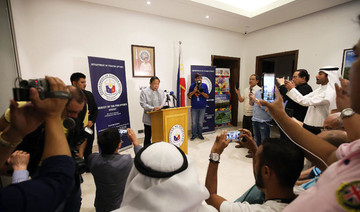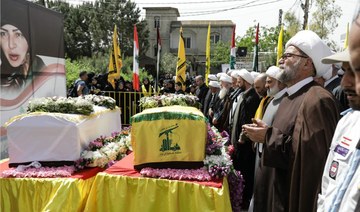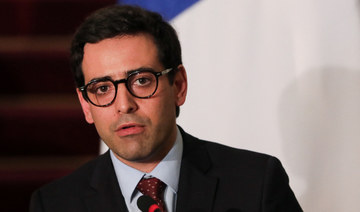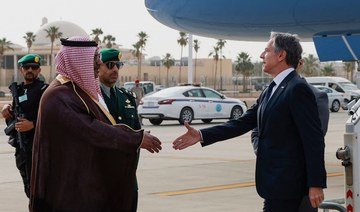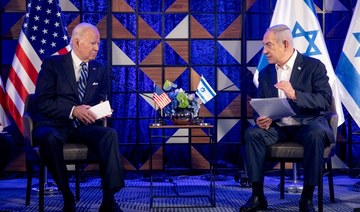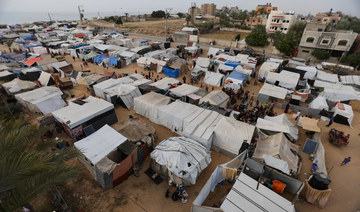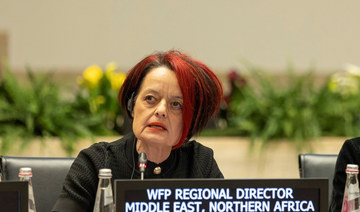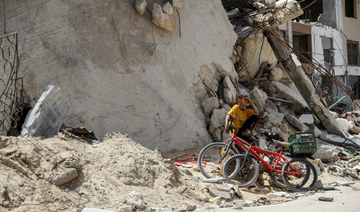COLOMBO: The number of workers leaving Sri Lanka to take up jobs as housemaids in Gulf Cooperation Council (GCC) countries and the Far East has soared by more than 16 percent in the past year.
Saudi Arabia, Kuwait and Qatar were the main destinations in the Middle East for domestic employees coming from the Sri Lankan capital, Colombo, with Japan and South Korea most popular in the Far East.
Figures for the areas highlighted show that a total of 64,965 people left Sri Lanka to work as housemaids in 2018, an increase from 55,884 the year before.
Madhava Deshapriya, deputy general manager for corporate communications at the Sri Lanka Bureau of Foreign Employment, told Arab News on Friday that the upward trend is being put down to recruitment agencies making salary payments of up to SR6,000 ($1,600) to housemaids in advance of them leaving Sri Lanka for their new jobs abroad.
One Sri Lankan recruitment agent, Abdul Rahman, said new laws restricting working hours for women had encouraged maids to seek out better-paid jobs in other countries. It is estimated that there are 1.5 million Sri Lankans currently working in the Middle East.
Number of Sri Lankan housemaids in Gulf up
Number of Sri Lankan housemaids in Gulf up

- It is estimated that there are 1.5 million Sri Lankans currently working in the Middle East
Red Cross has no mandate to replace UNRWA in Gaza, chief says
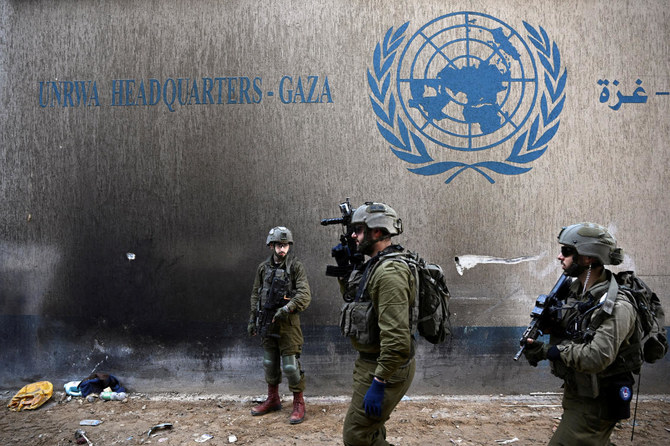
UNRWA was swept into controversy in January when Israel accused 12 of its 30,000 employees of being involved in the October 7 Hamas attacks which led to the deaths of around 1,160 people — mostly civilians — according to an AFP count based on official Israeli figures.
Israel’s retaliatory offensive has killed nearly 35,000 people in Gaza, mostly women and children, according to the health ministry in the Hamas-run Palestinian territory.
The UN immediately fired the implicated staff members and launched an internal investigation to assess the agency’s neutrality.
“We have completely different mandates,” ICRC director general Pierre Krahenbuhl told Swiss daily Le Temps in an interview.
UNWRA’s mandate “comes from the UN General Assembly, the ICRC’s from the Geneva Convention. The ICRC cannot take over UNRWA’s mandate,” he said.
“We already have enough to do without replacing other organizations,” said Krahenbuhl, who himself had headed UNRWA between 2014 and 2019.
Last week, a report by an independent group led by French former foreign minister Catherine Colonna concluded that Israel had failed to furnish proof that some UNRWA employees had links to “terrorist organizations” such as Hamas.
UNWRA is a crucial provider of food to Palestinian refugees, defined as Palestinians who fled or were expelled around the time of Israel’s 1948 creation, or their descendants.
In March, UNRWA head Philippe Lazzarini said UNRWA had “reached a breaking point,” with israel calling for its dismantling, major donors freezing their funding due to the Israeli accusations, and the people of Gaza facing a desperate humanitarian crisis.
Hamas claims rocket barrage from Lebanon into north Israel
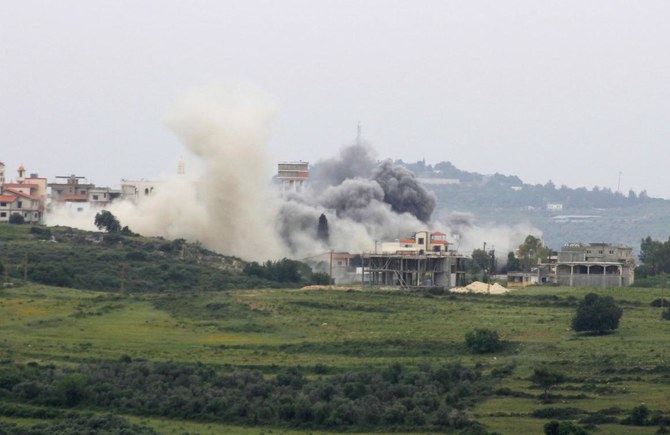
- No injuries or damages were reported
BEIRUT: Hamas’s armed wing said its militants in Lebanon’s south launched Monday a slew of rockets at a northern Israeli military position, as fighting has raged on in the Gaza Strip.
After Hamas’s October 7 attack on Israel triggered war in Gaza, its powerful Lebanese ally Hezbollah has exchanged near-daily fire with Israeli forces across the border.
Palestinian factions and other allied groups in Lebanon have also sometimes claimed attacks.
Hamas fighters “have fired a concentrated rocket barrage from south Lebanon toward” an Israeli military position, said the Ezzedine Al-Qassam Brigades in a statement on Telegram.
The armed wing described the action as a “response to the massacres of the Zionist enemy (Israel)” in Gaza and the occupied West Bank.
the Israeli army told AFP that “approximately 20 launches crossed from Lebanon into Israeli territory” but it had intercepted most rockets and struck “the sources of fire.”
“No injuries or damage were reported,” the army said.
The latest rocket barrage came as Hamas negotiators were expected to arrive in Egypt on Monday, where they were due to respond to Israel’s latest proposal for a long-sought truce in Gaza and hostage release.
On April 21, the Qassam Brigades claimed a rocket barrage into northern Israel.
A strike in January, which a US defense official said was carried out by Israel, killed Hamas deputy leader Saleh Al-Aruri and six other militants in Hezbollah’s south Beirut stronghold.
In Lebanon, at least 385 people have been killed in months of cross-border violence, mostly militants but also 73 civilians, according to an AFP tally.
The tally includes at least 11 Hamas fighters.
Israel says 11 soldiers and nine civilians have been killed on its side of the border.
Tens of thousands of people have been displaced on both sides.
Top US envoy Blinken addresses special WEF meeting in Riyadh

- Senior US official earlier joined the opening of a US-Gulf Cooperation Council meeting
RIYADH: Antony Blinken, the US Secretary of State, sits down with Borge Brende, the president of World Economic Forum, for a conversation during the last day of the Special Meeting On Global Collaboration, Growth And Energy For Development in Riyadh.
Blinken earlier joined the opening of a US-Gulf Cooperation Council meeting, where he told the region’s foreign ministers that the best way to ease the humanitarian catastrophe in Gaza would be to negotiate a ceasefire agreement that would release hostages held by Hamas.
“The most effective way to address the humanitarian crisis in Gaza, to alleviate the suffering of children, women and men, and to create space for a more just and durable solution is to get a cease-fire and the hostages out,” he said.
“But we’re also not waiting on a ceasefire to take the necessary steps to meet the needs of civilians in Gaza.”
Blinken also told the GCC ministers that Iran’s confrontation with Israel showed the need for greater defense integration.
“This attack highlights the acute and growing threat from Iran but also the imperative that we work together on integrated defense.”
The top US diplomat met separately with Saudi Prince Faisal bin Farhan, Minister of Foreign Affairs, where they reviewed ways to strengthen bilateral relations and joint cooperation in various fields, the Saudi Press Agency said.
Israel kills at least 20 Palestinians in Rafah, new Gaza ceasefire talks expected in Cairo
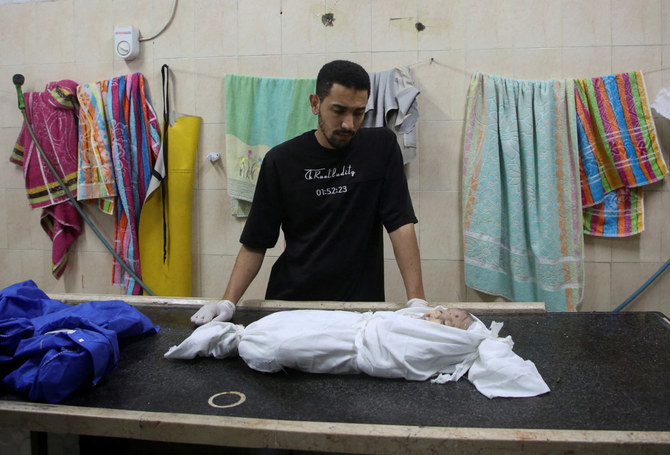
- The strikes came hours before Egypt was expected to host Hamas leaders to discuss prospects for a ceasefire agreement with Israel
- Mediators from Qatar and Egypt, backed by the US, have stepped up their efforts to conclude a deal as Israel threatened to invade Rafah
CAIRO: Israeli airstrikes on three houses in the southern Gaza city of Rafah killed at least 20 Palestinians and wounded many others, medics said on Monday, as Egyptian and Qatari mediators were expected to hold a new round of ceasefire talks with Hamas leaders in Cairo.
In Gaza City, in the north of the Gaza Strip, Israeli warplanes struck two houses, killing at least four people and wounding several people, health officials said.
The strikes on Rafah, where more than one million people are seeking refuge from months of Israeli bombardment, took place hours before Egypt was expected to host leaders of the Islamist group Hamas to discuss prospects for a ceasefire agreement with Israel.
The Israeli military said it was checking the report.
Israel has vowed to eradicate Hamas, which controls Gaza, in a military operation that has killed more than 34,000 Palestinians, 66 of them in the past 24 hours, according to Gaza’s health authorities. The war has displaced most of the 2.3 million population and laid much of the enclave to waste.
The conflict was triggered by an attack by Hamas militants on Israel on Oct. 7 in which they killed 1,200 people and took 253 hostage, according to Israeli tallies.
An assault on Rafah, which Israel says is the last Hamas stronghold in the Gaza Strip, has been anticipated for weeks but foreign governments and the United Nations have expressed concern that such action could result in a humanitarian disaster given the number of displaced people crammed into the area.
On Sunday, Hamas officials said a delegation led by Khalil Al-Hayya, the group’s deputy Gaza chief, would discuss a ceasefire proposal handed by Hamas to mediators from Qatar and Egypt, as well as Israel’s response. Mediators, backed by the United States, have stepped up their efforts to conclude a deal.
Two Hamas officials who spoke to Reuters did not disclose details of the latest proposals, but a source briefed on the talks told Reuters that Hamas is expected to respond to Israel’s latest truce proposal delivered on Saturday.
The source said this included an agreement to accept the release of fewer than 40 hostages in exchange for releasing Palestinians held in Israeli jails, and to a second phase of a truce that includes a “period of sustained calm” — Israel’s compromise response to a Hamas demand for a permanent ceasefire.
After the first phase, Israel would allow free movement between south and north Gaza and a partial withdrawal of Israeli troops from Gaza, the source said.
A senior Hamas official told Reuters the Monday talks in Cairo will take place between the Hamas delegation and the Qatari and the Egyptian mediators to discuss remarks the group has made over the Israeli response to its recent proposal.
“Hamas has some questions and inquires over the Israeli response to its proposal, which the movement received from mediators on Friday,” the official told Reuters.
Those comments suggested Hamas may not hand an instant response to mediators over Israel’s latest proposal.
Displacement of Palestinians from embattled Gaza confronts Egypt with array of challenges
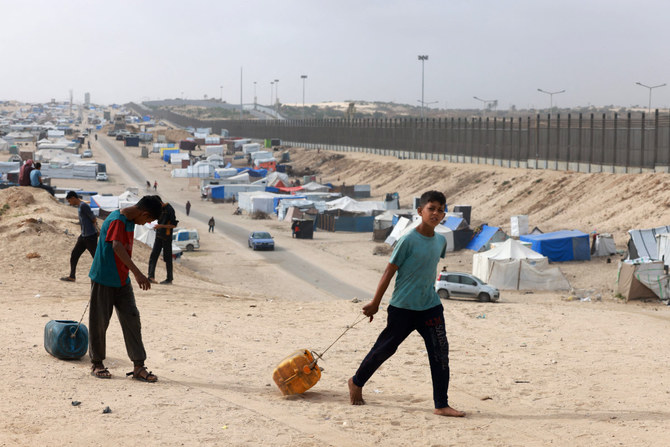
- Egyptians feel morally obliged to help Palestinians but wary of a mass influx through Rafah
- Officials in Cairo see large-scale expulsion by Israel as death knell for Palestinian statehood
CAIRO: More than 1 million Palestinian refugees have found their last refuge in Rafah, Gaza’s southernmost city on the Egyptian border, where they grimly await a widely expected Israeli offensive against Hamas holdouts in the area.
Meanwhile, thousands of Palestinians, many of them with the help of family members already outside Gaza, have managed to cross the border into Egypt, where they remain in a state of limbo, wondering if they will ever return home.
For its part, the Egyptian government faces the prospect of a mass influx of Palestinians from Gaza into Sinai should Israel ignore international appeals to drop its plan to strike Hamas commanders in Rafah.
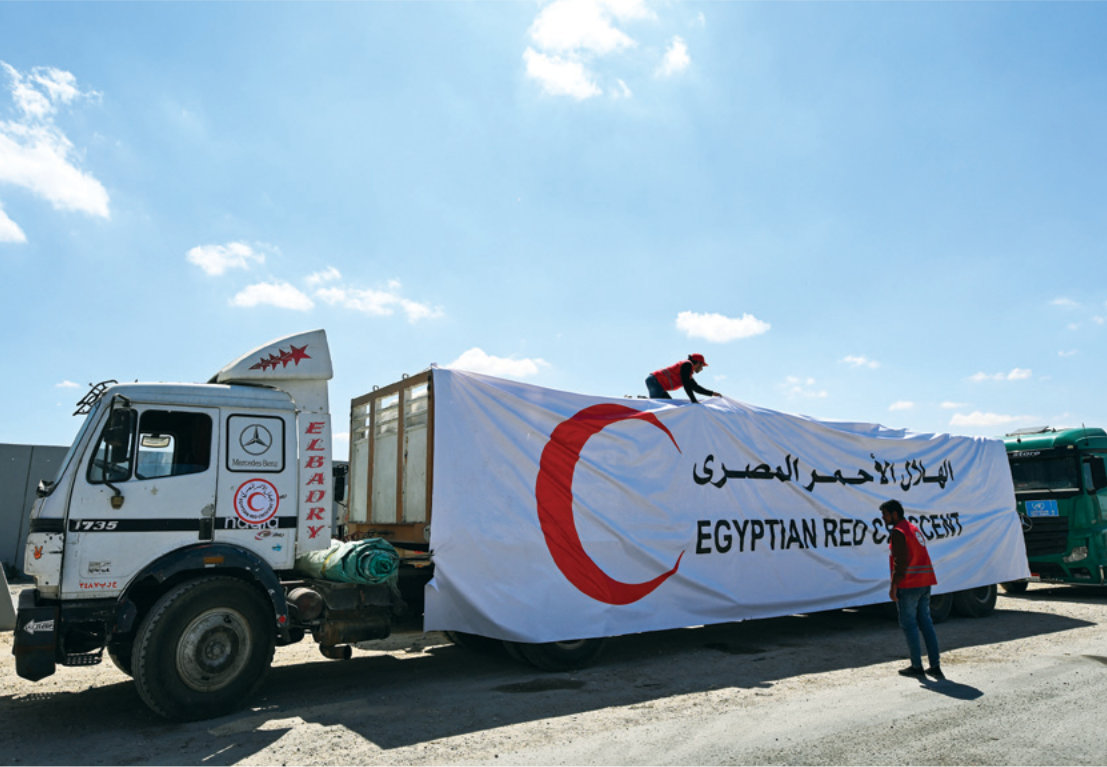
Although the Egyptian public is sympathetic to the Palestinian plight, shouldering the responsibility of hosting refugees from Gaza is fraught with security implications and economic costs, thereby posing a difficult dilemma.
Furthermore, despite taking in refugees from Sudan, Yemen and Syria, the Egyptian government has been cautious about permitting an influx of Palestinians, as officials fear the expulsion of Gazans would destroy any possibility of a future Palestinian state.
“Egypt has reaffirmed and is reiterating its vehement rejection of the forced displacement of the Palestinians and their transfer to Egyptian lands in Sinai,” Abdel Fattah El-Sisi, the Egyptian president, told a peace summit in Cairo last November.
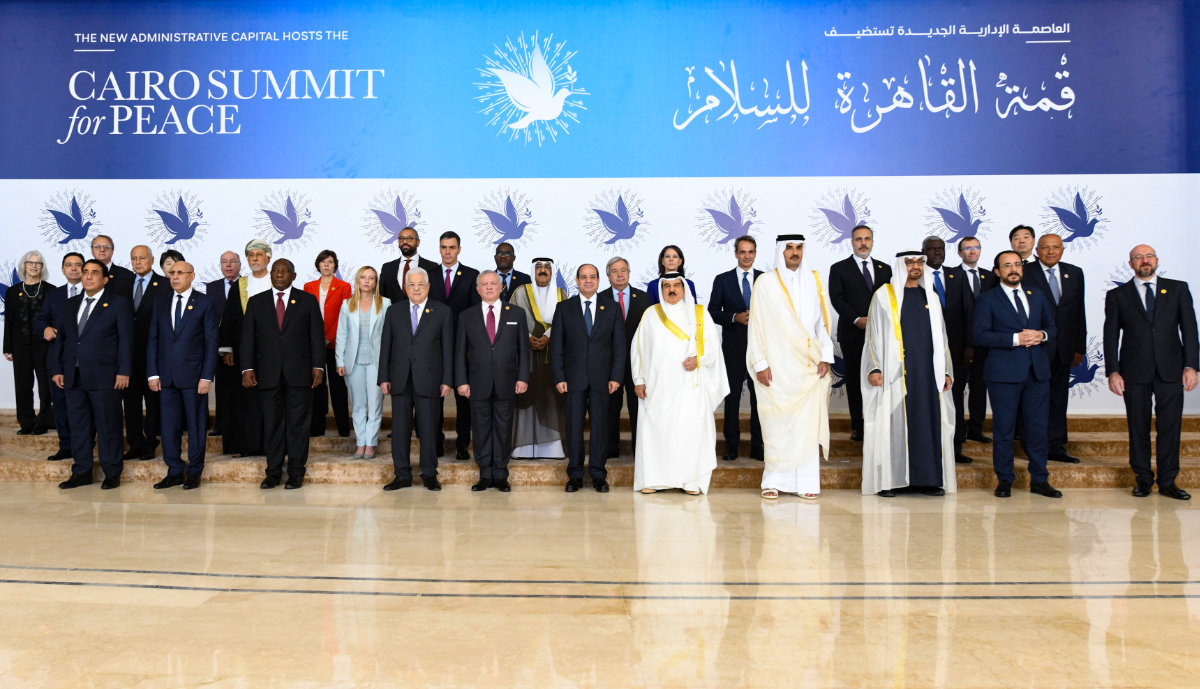
Such a plan would “mark the last gasp in the liquidation of the Palestinian cause, shatter the dream of an independent Palestinian state, and squander the struggle of the Palestinian people and that of the Arab and Islamic peoples over the course of the Palestinian cause that has endured for 75 years,” he added.
Additionally, if Palestinians now living in Rafah are uprooted by an Israeli military offensive, Egypt would be left to carry the burden of a massive humanitarian crisis, at a time when the country is confronting daunting economic challenges.
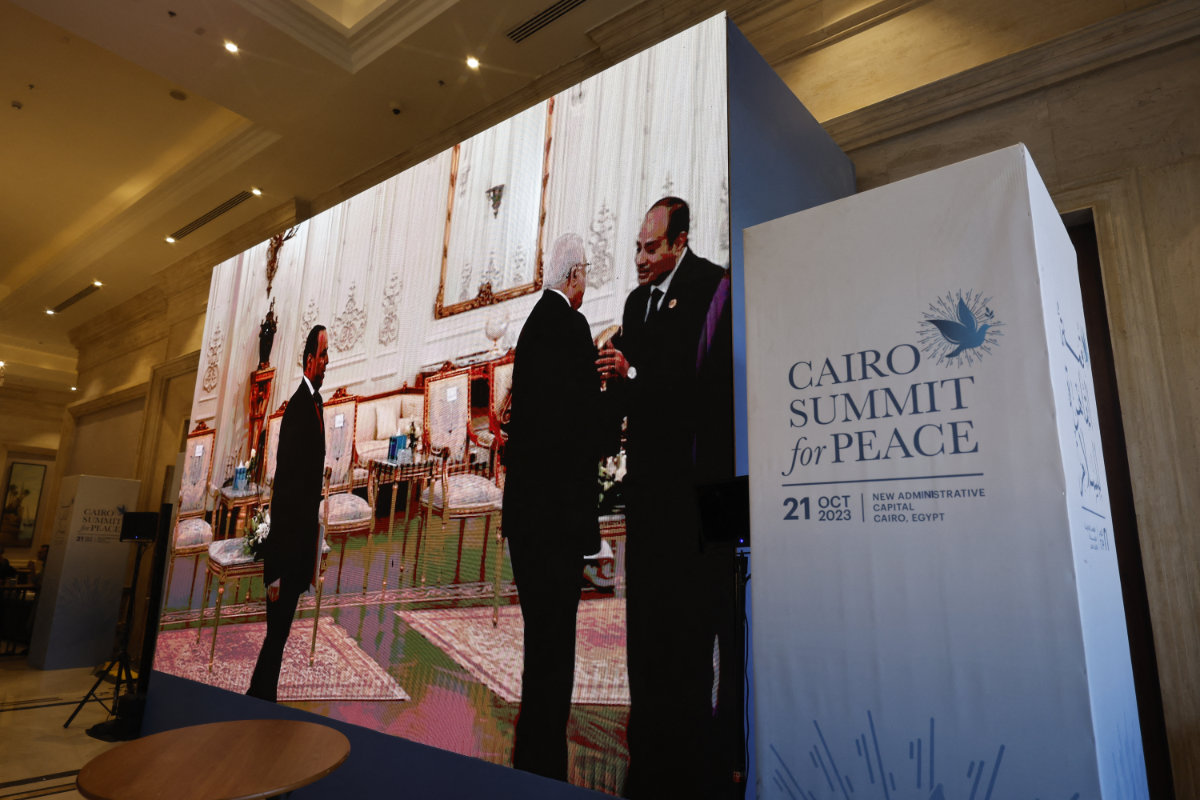
Although Egypt earlier this year landed its largest foreign investment from the UAE, totaling some $35 billion, experts believe that the economic crisis is far from over, with public debt in 2023 totaling more than 90 percent of gross domestic product and the local currency falling 38 percent against the dollar.
Salma Hussein, a senior researcher in economy and public policies in Egypt, believes Egypt is not in the clear yet.
“We are slightly covered but we will need more money flowing in and bigger investments,” she told Arab News. “We also have large sums of debt we need to pay back. The IMF pretty much recycled our debt and we have interest rates to cover.
“In times of political instability, we see a lot of dollars leaving the country in both legal and illegal ways. This happened in 2022 and it also happened during the last presidential elections in 2023.
“I think the same thing will happen again now due to what’s happening in the region. This is all a loss of capital which can affect us.”
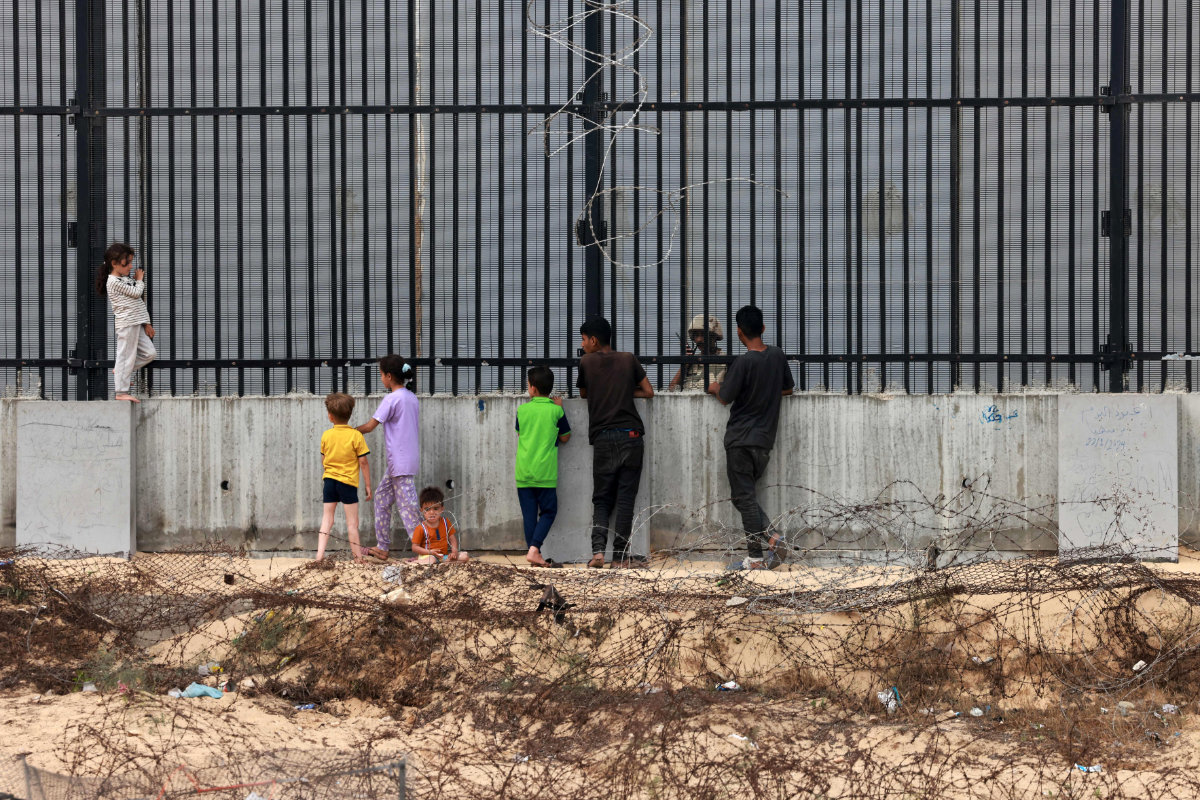
She is confident foreign assistance will be offered. And although the cost of hosting refugees will be high, there are many economic benefits to be had from absorbing another population — even for the Arab world’s most populous country.
“Egypt is too big to fail,” said Hussein. “There will be a bailout of its economy when it’s in deep trouble. And while investments and loans might not turn into prosperity, they will at least keep the country afloat. This is where we are now.
“As for the presence of a growing number of Palestinian refugees, I don’t think any country in the world had its economy damaged by accepting refugees. On the contrary, it might actually benefit from a new workforce, from educated young people, and from wealthy people who are able to relocate their money to their country of residence.”
FASTFACTS
• 1.1 million+ Palestinians who have sought refuge in Rafah from fighting elsewhere in Gaza.
• 14 Children among 18 killed in Israeli strikes on Rafah on April 20.
• 34,000 Total death toll of Palestinians in Israel-Hamas war since Oct. 7, 2023.
However, it is not just the economic consequences of a Palestinians influx that is unnerving Egyptian officials. This wave of refugees would likely include a substantial number of Hamas members, who might go on to fuel local support for the Muslim Brotherhood.
Hamas shares strong ideological links with the Muslim Brotherhood, which briefly controlled Egypt under the presidency of Mohamed Morsi in 2012-13 and has since been outlawed.
Since Morsi was forced from power, the country has been targeted by Islamist groups, which have launched attacks on Egyptian military bases in the Sinai Peninsula. The government is concerned that these Islamist groups could recruit among displaced Palestinians.

The decision might be out of Egypt’s hands, however. Several members of Israeli Prime Minister Benjamin Netanyahu’s right-wing coalition government have publicly called for the displacement and transfer of Palestinians in Gaza into neighboring countries.
Israel’s finance minister, Bezalel Smotrich, previously said that the departure of the Palestinians would make way for “Israelis to make the desert bloom” — meaning the land’s reoccupation by Israeli settlers.
Itamar Ben-Gvir, Israel’s minister of security, also said: “We yelled and we warned, if we don’t want another Oct. 7, we need to return home and control the land.”

Up to 100,000 Palestinians live in Egypt, many of them survivors of the Nakba of 1948 and their descendants. Their numbers steadily rose when Gamal Abdel Nasser came into power in 1954 and permitted Palestinians to live and work in the country.
However, matters changed after the 1973 Arab-Israeli war. Palestinians became foreign nationals, excluded from state services and no longer granted the automatic right to residency.
The precise number of Palestinians who have arrived in Egypt since the Gaza war began after Oct. 7 has not been officially recorded.
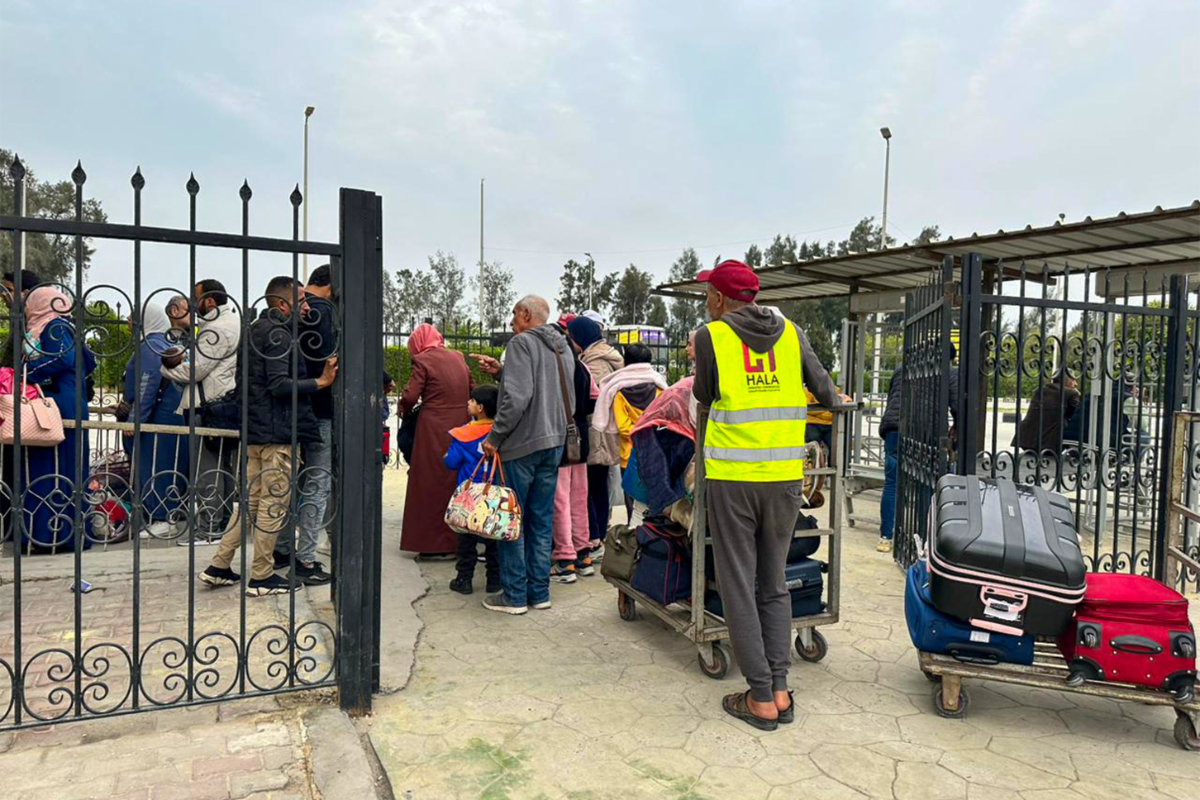
Those who have made it to Egypt, where they are hosted by sympathetic Egyptian families, fear they will be permanently displaced if Israel does not allow them back into Gaza. Many now struggle financially, having lost their homes and livelihoods during the war.
For host families, this act of charity is an additional burden on their own stretched finances. “We feel for the Palestinians but our hands are tied,” one Egyptian host in Cairo, who asked to remain anonymous, told Arab News.
“I am struggling financially myself, but I cannot bring myself to ask for rent from a man who lost his entire family and now lives with his sole surviving daughters.”
On the Egyptian side of the Rafah border crossing, trucks carrying aid and consumer goods are idling in queues stretching for miles, waiting for Israeli forces to permit entry and the distribution of vital cargo.
Many of the Egyptian truckers waiting at the border are paid to do so by the state. “We get salaries from the government and they provide us with basic food and water as we wait here,” one driver told Arab News on condition of anonymity.
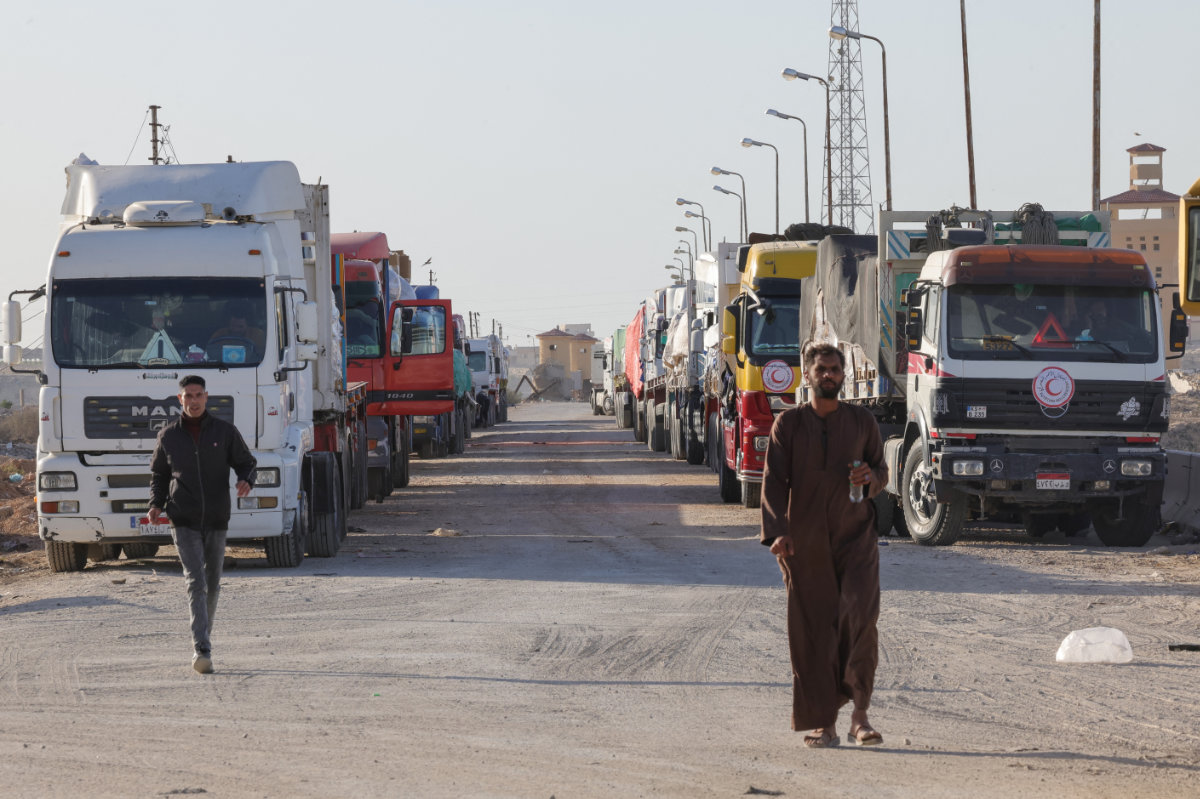
Israel has been limiting the flow of aid into Gaza since the war began, leading to shortages of essentials in the embattled enclave. Although Israel and Washington say the amount of aid permitted to enter has increased, UN agencies claim it is still well below what is needed.
Meanwhile, the truck drivers are forced to wait, many of them sleeping in their cabs or carrying makeshift beds with them. “I’d do this with or without a salary,” the trucker said. “Those are our brothers and sisters who are starving and dying.”
With events in Gaza out of their control, all Egyptians feel they can do is help in whatever small way they can — and hope that the war ends soon without a Palestinian exodus.
“It is unfathomable to me that we are carrying life-saving equipment and food literally just hours away from a people subjected to a genocide, and there are yet no orders to enter Gaza through the border,” the truck driver said.
“It shames me. I park here and I wait, and continue to wait. I will not leave until I unburden this load, which has become a moral duty now more than anything.”





